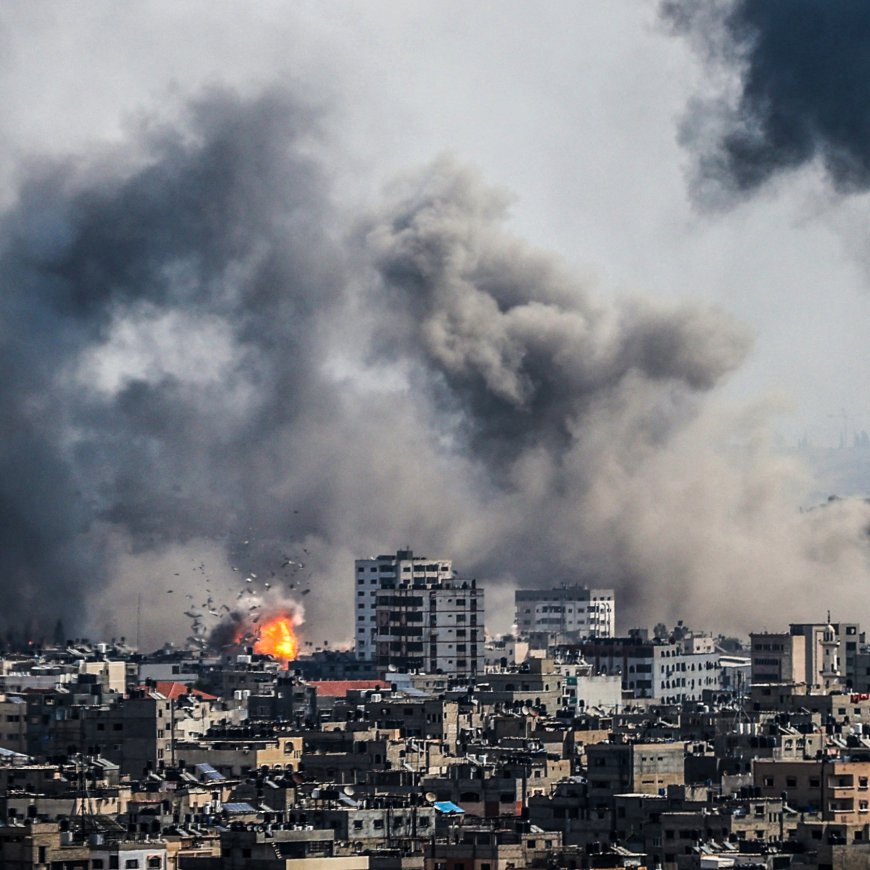Water Shortage Threatens Public Health: 95% of Gaza Lacks Clean Drinking Water
In Gaza, the dire lack of clean drinking water poses a severe health crisis. Polluted water and salty groundwater are making people ill, with the UN warning of child deaths from dehydration. Learn about the critical situation in Gaza and the impact of water scarcity on its population.

In the heart of Gaza, a humanitarian crisis is quietly unfolding, overshadowed by the political turmoil and conflicts of the region. The crisis stems from a fundamental necessity – clean drinking water. A staggering 95% of Gaza's population faces a perilous situation where polluted water and salty groundwater are making people gravely ill. The United Nations has sounded the alarm, warning of a dire threat to children's lives due to dehydration.
Gaza's Water Crisis: A Silent Humanitarian Emergency
This crisis has been exacerbated by a complex set of factors, including the long-standing tensions between Israel and Gaza. Restrictions on water and power imposed by Israel have resulted in an acute water shortage in the territory. Until recently, none of the water pipes from Israel into Gaza were functional. While two out of the three pipes are now working, a crucial connection between the southern towns of Rafah and Khan Younis is leaking.
The consequences of this water scarcity are devastating. Families who were forced to leave their homes are now standing in long queues for hours to access water they suspect is causing severe health issues. Eman Basher, a teacher in Gaza City, shared her concerns about her children's health, revealing symptoms such as abdominal cramps, vomiting, and diarrhea. These were initially attributed to sleeping on the floor or changes in weather, only for her to discover that they were the result of daily consumption of contaminated water.
The statistics are alarming. The UN reports that only 5% of Gaza's water needs are currently being met. Aid lorries from Egypt, which entered Gaza, carried enough water for 15,000 people for just one day. The ongoing conflict has displaced more than 1.4 million people, intensifying the need for clean drinking water.
Some areas in the southern part of Gaza have resorted to desalination plants, but they are operating at a mere 40% capacity. In contrast, the plants in northern Gaza are non-operational. Wells are being used to supplement water sources, but they have relatively high salt content, making them a suboptimal solution.
Maysoun Owda, sheltered at a UN school in Khan Younis, emphasized the issue of polluted water. People in shelters are forced to consume contaminated water as there is no potable water available, even through UNRWA, the UN agency for Palestinian refugees.
The crisis goes beyond scarcity; it's a logistical nightmare. People search for water tirelessly, paying money to access it, and waiting in long queues for hours. The situation can be a matter of life and death.
The Gaza Strip has been grappling with water access issues since Israel imposed a blockade in 2007, resulting in groundwater sources becoming polluted from overuse. The conditions have worsened since the recent escalation of tensions. Fuel shortages have prevented desalination plants from functioning at full capacity, hindered the transportation of water to homes, and disrupted sewage treatment plants. Consequently, wastewater has been released into the sea, further contaminating the coastal aquifer.
James Elder, representing the UN children's agency, UNICEF, issued a stark warning that many people in Gaza have no choice but to drink salty water. Gaza's water production capacity has plummeted to a mere 5% of its typical daily output. Child deaths, especially among infants, due to dehydration are an increasingly ominous threat.
The situation in Gaza is dire. Without a ceasefire, access to clean water, medical supplies, and the release of abducted children, the region faces even greater horrors, particularly impacting innocent children. It is a stark reminder of the urgent need for humanitarian assistance in Gaza to address the water crisis and its grave consequences.







